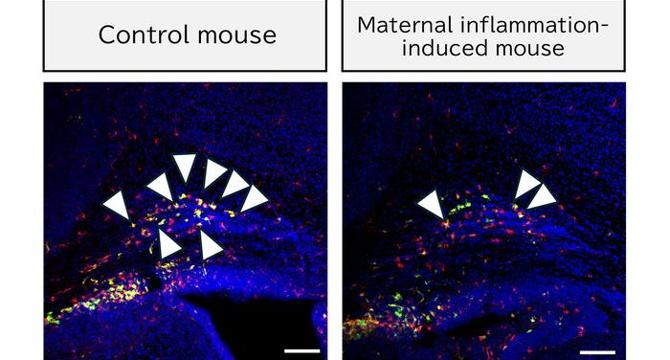Bioengineer
1d
293

Image Credit: Bioengineer
Immune Cell Insights Reveal Link Between Maternal Inflammation and Neurodevelopmental Disorders
- A study from Nagoya University reveals the impact of maternal inflammation on neurodevelopment, focusing on CD11c-positive microglia crucial for brain myelination.
- Inflammation during pregnancy could impede CD11c-positive microglia proliferation, affecting neurodevelopment in infants.
- CD11c-positive microglia play a vital role in myelination, essential for efficient neural signal transmission and cognitive development.
- Experiments on neonatal mice showed reduced CD11c-positive microglia proliferation due to maternal inflammation, mirroring human implications found in preterm infants.
- Analysis of cord blood samples revealed decreased levels of insulin-like growth factor 1, linked to impaired microglial function and delayed myelination in infants.
- Maternal immune activation can lead to cognitive challenges in children, indicating long-term neurological consequences from prenatal inflammation.
- Research highlights the importance of understanding the link between inflammation, CD11c-positive microglia, and cognitive outcomes in infants.
- Impaired myelination due to maternal inflammation can result in neurological issues, emphasizing the need for interventions to safeguard fetal brain development.
- Insights into the relationship may lead to targeted therapies mitigating the effects of maternal inflammation on neurodevelopment, potentially protecting infants from cognitive deficits.
- As research progresses, interventions targeting CD11c-positive microglia could offer promising strategies to enhance cognitive outcomes in children affected by maternal inflammation.
Read Full Article
17 Likes
For uninterrupted reading, download the app